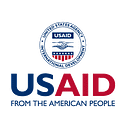Building Business Acumen in Ethiopia Opens Doors for Women-Owned Small Business and Bolsters Food Security
Ethiopia’s small and medium-sized enterprises (SMEs) drive economic growth, providing employment opportunities and income security. Until recently, Ethiopia boasted one of the fastest growing economies in the world. Today, the country faces a severe food security crisis as it continues to suffer from the conflict in Tigray, drought, and supply chain disruptions. Despite these setbacks, Ethiopia is still poised for investment as its population continues to grow at a rate of 3%. With a population of more than 120 million, SMEs play a crucial role in increasing household incomes.
USAID CATALYZE MS4G works with growth-oriented SMEs in the areas of food security, and Water, Sanitation, and Hygiene (WASH) to accelerate their capacity to grow and provide sustainable employment to youth and women, in turn, improving access to healthy diets.
Women-owned and women-led SMEs play an important role in improving food security as women are more likely to hire other women, who tend to put money back into caring for their families, instilling a more sustainable and stable environment with consistent food on the table. Yet women-owned SMEs face serious challenges ingrowing their businesses due to a lack of access to finance, education, information, and business networks. According to the World Bank Global Index data, globally, there is an estimated 8.3 percentage point financial inclusion gap between men and women, despite extensive evidence that investments in women-owned enterprises can be at least as viable, if not more viable than, enterprise investments led by men.
To empower more women-owned businesses, USAID CATALYZE MS4G is working with Business Service Advisory Providers (BASPs) to help women develop their companies through improved processes and operations and identify appropriate financial products (debt, equity, or grants). The CATALYZE BASP partners also assist the SMEs in the financial application process.
One hundred enterprises are receiving technical assistance from nine CATALYZE BASPs, 75% of which are women-owned or -led businesses. CATALYZE uses a Pay-for-Result mechanism, which means the BASP provides business advice to an SME and gets paid when the business improves its financial outcomes.
MS4G has already seen significant results from supporting women-owned businesses using the Pay-for-Results model and other business development tools. Twenty-six of those businesses focus on food security, including a company called Arki Agro.
Founded by Ms. Tejnesh Benti and her two children, Arki Agro produces 17 baltena (Ethiopian spice blends and traditional flours), providing high quality organic products to the local and export markets. In 2021, the CATALYZE MS4G activity facilitated business support for Arki Agro through Audacia Consulting, which is a women-owned BASP. Audacia conducted a diagnostic assessment to increase the sales and revenue of Arki by a minimum of 10% within one year of assistance. The MS4G activity’s Pay-for-Results model will pay Audacia once Arki hits its 10% growth target. Audacia Consulting provided Arki strategic guidance, helped them streamline business processes, and advised the company on new ways to structure their business to enhance performance.
“We started our business in my home. Even though we wanted to expand, we did not know how,” said Benti. “Audacia’s support in marketing, optimizing our administration functions, and loan facilitation is opening new doors, allowing us to grow and explore expansion possibilities.”
MS4G’s business advisory support to small businesses in Ethiopia is helping to increase access to affordable, quality food for Ethiopians.
